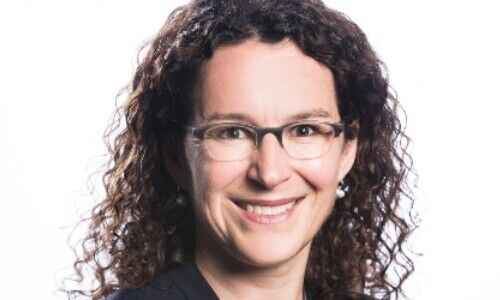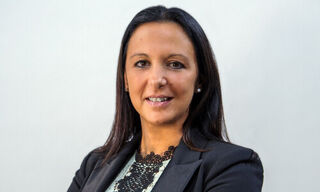Comparing companies based on their ESG practices will become easier in the future once they begin climate reporting, Sabine Doebeli from Swiss Sustainable Finance told finews.com. She also highlighted another growing trend in sustainable finance.
Two climate reporting measures will be the focus of sustainable finance this year.
Large Swiss companies have until 2024 to prepare a report based on the recommendations of the Taskforce on Climate-related Financial Disclosure, a global initiative, aiming to give financial institutions and companies a complete picture of their environmental risks.
Separately, the Swiss Government is advising financial institutions to apply a set of indicators on the climate alignment of their portfolios, called «Swiss Climate Scores.»
Comparability
«I am looking forward to a situation where we’ll see more comparability based on clear indicators,» Sabine Doebeli, CEO of Swiss Sustainable Finance (SSF), an association that provides research as well as practical tools for companies to integrate sustainability factors into their businesses.
Last year’s controversies around sustainable finance ranged from dilemmas brought about by the war in Ukraine, to financial institutions backtracking on net-zero commitments out of fear of being boycotted in certain oil-rich US states. Yet for Doebeli, there was no backlash against ESG investments in Switzerland.
Quite the opposite: Although investments in ESG products were affected by the overall negative performance in all markets, «volumes of sustainable funds kept growing,» she said.
Becoming Mainstream
While the fund market suffered outflows of 9.5 billion Swiss francs ($10.2 billion) by the end of October, sustainable funds (based on Morningstar) had 13.9 billion francs in inflows. «I don’t think you can call this a backlash,» she added.
However, Doebeli does recognize that criticism around ESG investments has been growing and that the regulatory environment for banks and asset managers offering sustainable investments has become more complicated. But she sees this as «a natural and important part of the process when a niche market becomes mainstream.»
Full-Circle
After working in sustainable finance for 25 years and serving as CEO of SSF since 2014, Doebeli finds it notable that criticism against sustainable finance has come full circle.
When sustainable finance first started around 30 years ago, it was seen as something for the «ethically minded,» something for investors, who were more interested in doing good than maximizing returns.
Now that ESG factors are being integrated into the stock selection to improve risk/return profiles, such investments are being criticized for not having enough real-world impact. This illustrates the confusion about the different objectives of different sustainability approaches and calls for more clarity for investors, she said.
Greenwashing Catalyst
Moreover, SSF welcomes the Swiss government’s efforts to tackle greenwashing and will be part of the working group elaborating concrete suggestions on how to do so.
The scare of falling into the greenwashing trap is also driving the shift from ESG stock selection toward investments that can demonstrate their positive impact on society and the planet, so-called «impact investments,» according to Doebeli.
In support of this increase in investor engagement, financial providers will continue to «build up their capacity in sustainable finance this year,» Doebeli said.



































